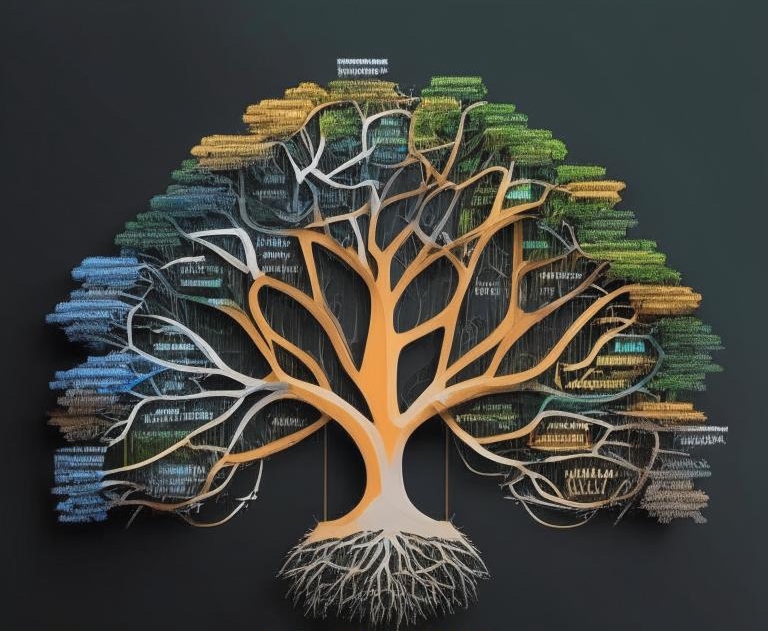Sociology
by Author
Sociology studies social interactions, norms, and cultural codes, offering useful tools for analyzing complex systems. In modern software, social aspects increasingly influence both the development and use of technology. Sociological theories can serve as a foundation for creating more accurate domain models, providing concepts and language to describe the domain’s objects.
We view the modeling process through the concept of umwelt — a subjective representation of the domain shaped by the interaction of all project participants. In the context of software, this helps bridge the gap between technical implementation and its social function, providing a more accurate perception of the system.
Applying Sociological Theories to Create the Umwelt
Sociological theories reveal key aspects of interactions that go beyond a system’s technical characteristics. To create the conceptual schema (umwelt), we use a mind map that visualizes the key connections and relationships within the domain. Sociological theories help structure these connections by uncovering the hidden social mechanisms influencing the system.
What Does This Offer?
-
Understanding the Umwelt. Concepts such as Max Weber’s social action and Erving Goffman’s frames help us better understand how users interact with the system, form their expectations, and how social structures influence software use.
-
Social Dynamics in Modeling. Sociological theories integrate social norms and practices into the system’s model, which is especially important in complex projects such as marketplaces or social platforms where user interactions play a central role.
-
Managing Complexity. Sociology provides tools for managing domain complexity by helping us understand how different groups perceive and interact with the system. This makes the domain model more precise and adaptable to the real world.
One goal of this section is to compare sociological research methods with the process of domain analysis. Sociology examines structures and interactions, offering tools to create models that account for social factors. We will also review major theories and distinctions to choose the right approach for a specific project.
Sociology gives us “glasses” through which we can view the domain in a new way, offering a deeper understanding of social interactions and cultural norms that influence user behavior. A sociological approach helps avoid simplistic conceptualization and structures the system more accurately, while the use of umwelt as a mind map makes this understanding accessible and clear to all development participants.
sociology conceptualization umwelt knowledge theories
Dive deeper
-
The Process of Cognition
An examination of the influence of sociological theories and methods on the research and understanding of complex subject areas.
